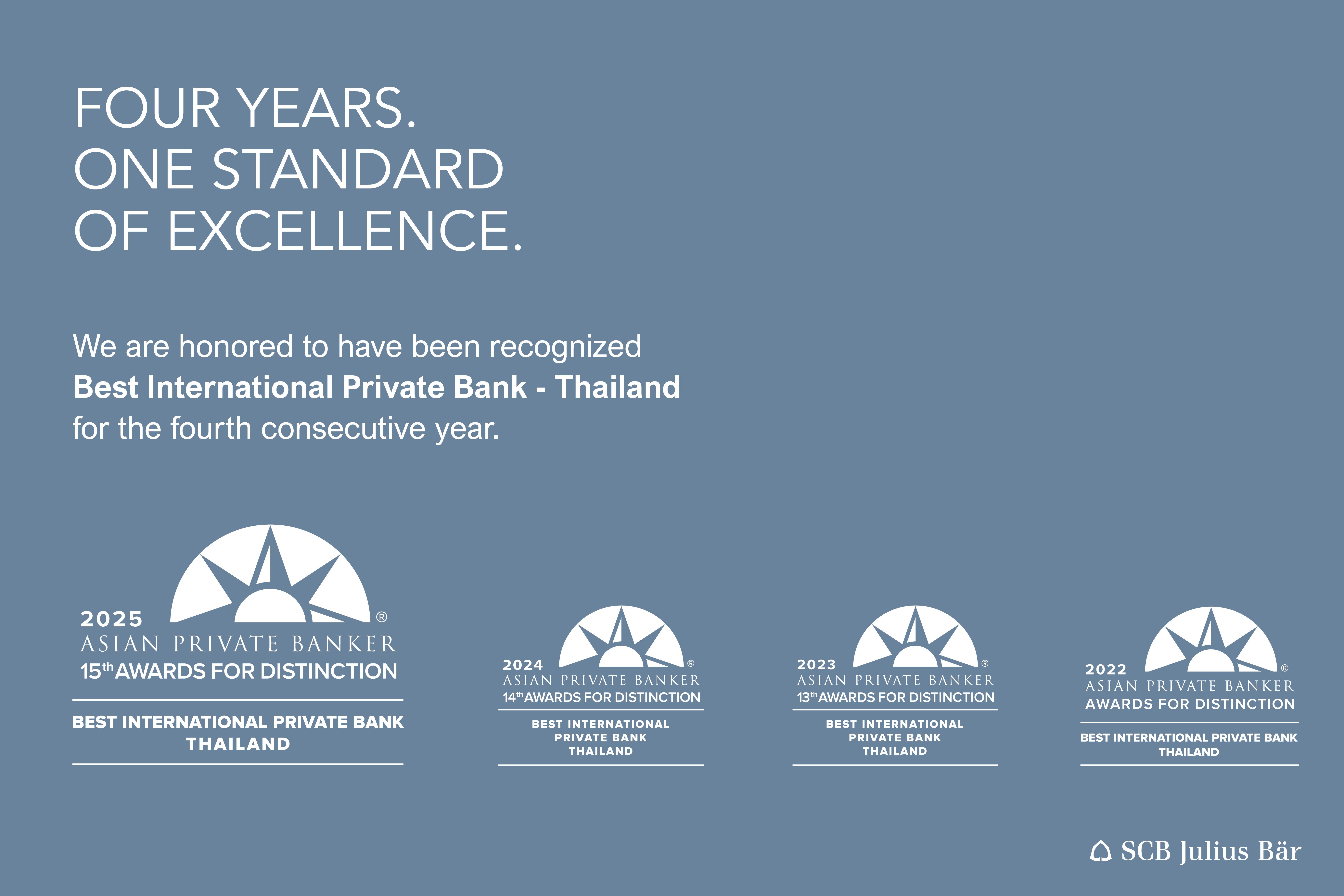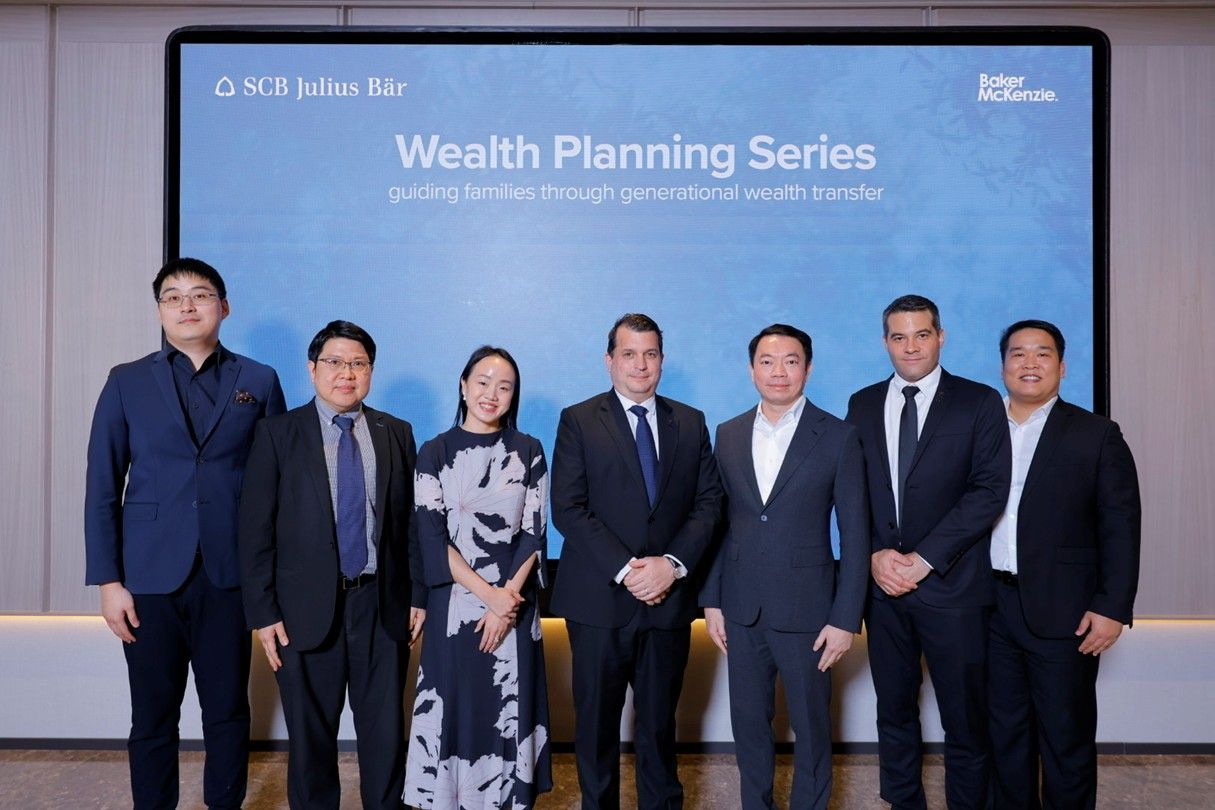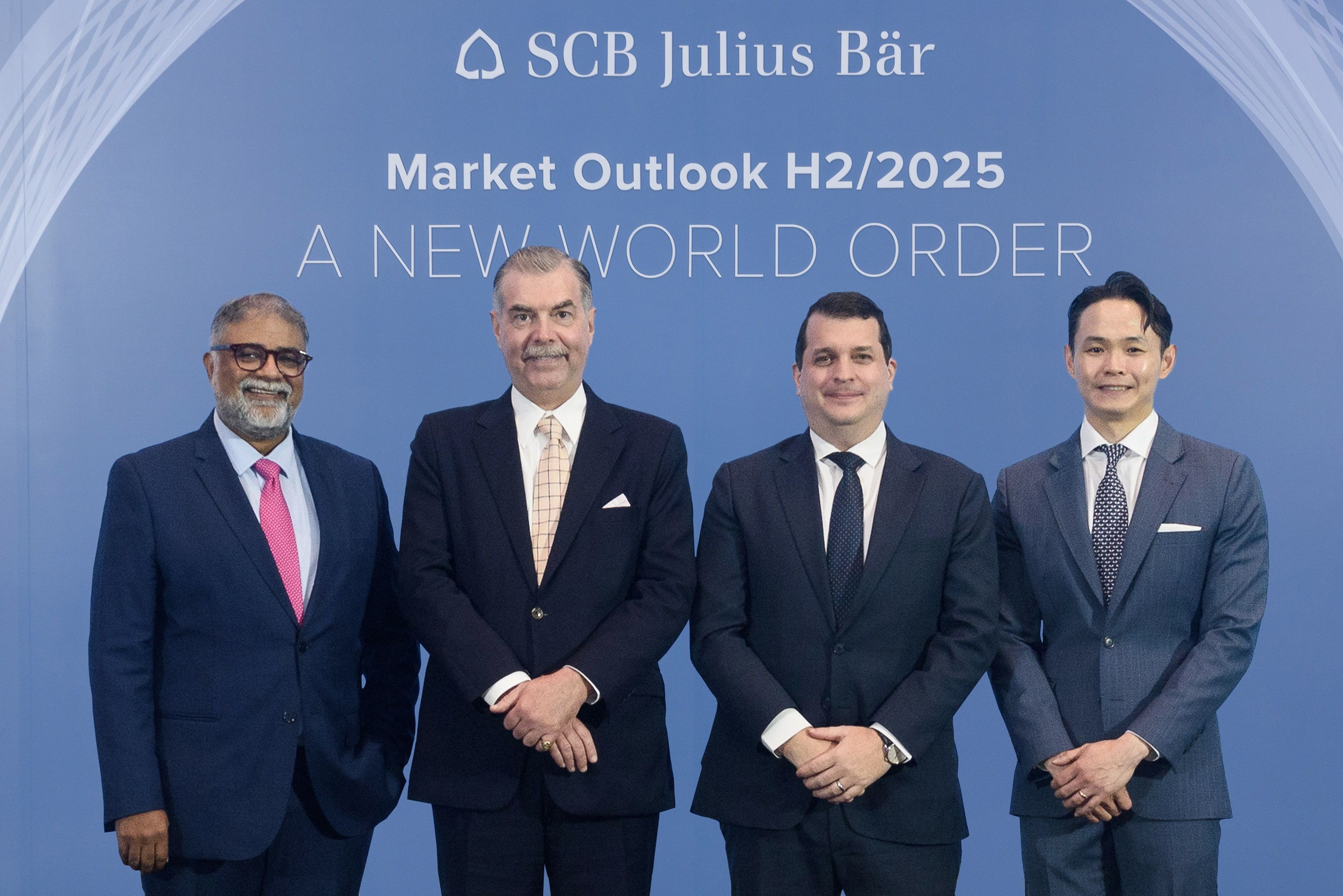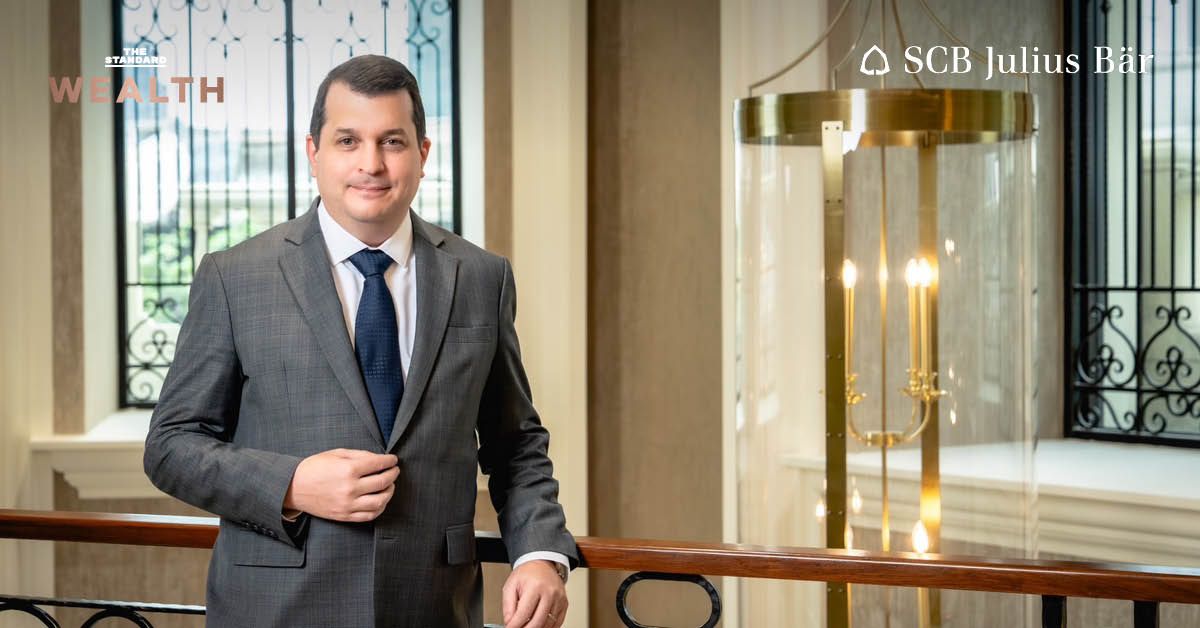We use cookies and other similar technologies on our website to enhance your browsing experience. For more information, please visit our Cookies notice
8 July 2025








The phenomenon of ‘The Great Wealth Transfer’ is one of the most significant economic and generational changes in the current era. A report from the Julius Baer Family Barometer predicts that a staggering $19.4 trillion will be transferred globally from one generation to the next in the coming decades. This is not merely a movement of financial figures, but the transfer of responsibility, values, and identity that will redefine the future of family businesses and the global investment landscape, especially as the majority of the heirs belong to Generation Y, who have an entirely different perspective on ‘success’ and ‘legacy’.
THE STANDARD WEALTH had the opportunity to speak with Mr. Adrian Mazenauer, Chief Executive Officer, SCB Julius Baer to decode the opportunities and challenges in building on this historic wealth.
Wealth Transfer: The Most Important Thing is ‘Family Communication’
Research from the Family Wealth Alliance indicates that 70% of family wealth will be lost by the second generation, and 90% by the third generation. To avoid such occurrences, Adrian emphasizes that the most crucial aspect of wealth transfer is not technical issues like taxes or structures, but ‘preparation’.
A family that will grow across generations is one that involves younger members in discussions early on and passes on not just capital but also the context of its origin,” Adrian said. “Ultimately, The Great Wealth Transfer is not just a financial event, but the passing of goals from generation to generation.
Adrian said, think of it like passing down a beloved restaurant. The recipes and ingredients are there — but unless the next generation understands the essence behind it, the story, the soul of the dish might be lost. When done with care and communication, the flavour — the legacy — continues to nourish for years to come.
The biggest challenge turns out to be something that seems simple: 'communication.' A recent survey revealed that 46% of Asian families avoid discussing wealth transfer due to fear of conflict. Research shows that 60% of failures in wealth transfer stem from a lack of communication and trust.
' The technical challenges can be solved. It’s the emotional and relational ones that are harder. Silence often leads to confusion. Families that manage this well focus on transparency, start communicating, and engage in discussions early on, involving multiple generations,' Adrian explained.

When the ‘Success’ of Gen Y is Measured Not by Accumulation, but by ‘Creating Impact’
When the baton is passed to the new generation of heirs, especially Gen Y, the definitions of success and legacy change entirely. They may not always be interested in inheriting the family business but instead have their own passions and goals.
Legacy for Gen Y is closely tied to values and impact. They’re looking beyond performance metrics to ask: “What does this investment stand for?”
'For many Gen Y heirs, success has shifted from accumulation to creating a positive impact. While previous generations-built businesses and focused on preserving wealth, today’s heirs want their wealth to align with their identities and beliefs. They are thinking about the social impact of capital, not just its growth,' Adrian said.
This concept is reflected in the evolving investment styles. According to data from Bain & Co., 63% of Gen Y prioritize purpose-driven investing. They seek opportunities in sustainable businesses, investments that align with ESG principles, private equity, and digital assets. Additionally, as digital natives, they expect a digital-first wealth management experience that offers freedom, direct access to investments, seamless user experiences, real-time information access, and personalized services.

Decoding Borderless Opportunities: The ‘Investing for Legacy’ Strategy
As the definition of ‘legacy’ changes, investment strategies must adapt accordingly. Investing for legacy in this era is no longer just about focusing on short-term returns; it’s about creating a portfolio that reflects the family’s long-term values and goals.
Adrian explains, ‘Borderless’ reflects both geography and mindset. These investors aren’t constrained by location or convention — they look globally for ideas that align with their principles.
Another popular form of wealth management among high-net-worth families (HNW) in Thailand is the establishment of family offices, aimed at systematically managing assets, covering investments, tax planning, inheritance, legal matters, and social activities. Currently, the trend of setting up family offices is increasingly spreading in Thailand, and they can take various forms, whether closely managing a single family or providing multi-family services. This includes using services from financial institutions that specifically cater to wealth management, helping families access comprehensive solutions for investments, estate planning, and sustainably passing wealth to the next generation.
'The key benefit is bringing the younger generation into the decision-making process without overwhelming them with all the responsibilities. They will learn and gain experience to prepare for larger roles in the future,' Adrian stated.
However, Adrian emphasizes an important caution: ‘Having goals without a plan can also be risky. We encourage having a clear framework, setting long-term objectives, understanding risk profiles, and not neglecting the importance of structure. Having values as guiding principles can be aligned with a solid strategy.’
Regarding the challenges of cross-border investment, which involve complexities in laws, taxes, and governance, SCB Julius Baer, as the only truly comprehensive Private Banking service provider in Thailand, has expertise in both Thai and international contexts. This allows for the seamless and clear connection and design of investment plans that align with the family's goals.
Finally, Adrian left a message for the new generation of business heirs, Gen Y: ' You’re stepping into more than an inheritance — you’re stepping into influence.
Wealth gives you options, but it also gives you the chance to define what matters. Learn from those who came before you, but don’t be afraid to lead in your own way. Ask the difficult questions. Take your time. Align your goals with your values. Legacy starts the moment you begin shaping it — not years from now. This is your opportunity to build something lasting, not just financially, but personally and globally.’
Source: https://thestandard.co/scb-julius-baer-geny-borderless-wealth/